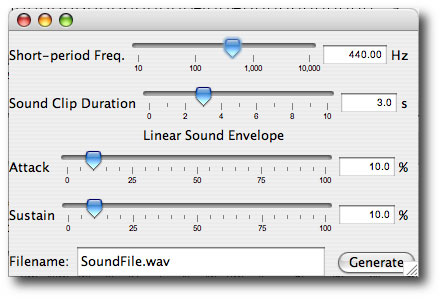
The systemic collaboration website has now been on the air for six months. Traffic has been increasingly steadily. By the end of April, oklo.org has been averaging 250 visitors a day, with a total of 1661 unique “real” visitors for the month. (This brings to mind a philosophical question: if a tree falls in a forest, and only robots, worms, or replies with special HTTP status codes comment, did it make a sound?)

The Systemic Team is enthusiastic about a number of improvements that will be coming on line very soon. Here’s a rundown of what to look for during May:
1. Aaron Wolf is putting the finishing touches on the next release of the systemic console. The updated version will have a number of subtle improvements to the existing controls, and will have several completely new features, including a sonification utility and a folding window. Sonification allows the user to create a .wav format audio file of the radial velocity waveform produced by a given configuration of planets orbiting a star:

As we’ll discuss in future posts, the ability to “listen” to dynamical systems provides a startlingly effective and completely novel way to evaluate the long-term orbital stability of a hypothesized system of planets. For example, when a configuration of planets is stable, one generally gets a sound with a steady timbre: [example 1.5 MB .wav file corresponding to a stable planetary system].
On the other hand, when a configuration of planets is unstable, the radial velocity waveform of the star can get pretty crazy, which can lead to an inifinite variety of very weird sounds: [example 0.5 MB .wav file corresponding to a dynamically unstable planetary system].
2. Stefano Meschiari, who will be transferring as a graduate student to the UCSC graduate program this Fall (yes!), has developed a PHP-based collaborative environment for the systemic project. Think flickr, think myspace, think the Extrasolar Planets Encyclopedia, think seti@home, and think effective scientific collaboration all rolled into one. I’m not kidding, folks, it’s amazing.
